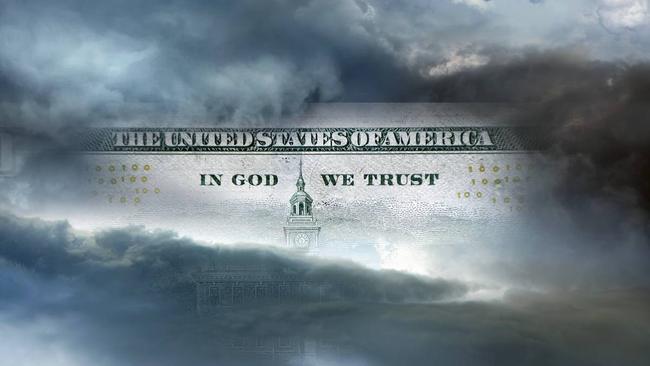The real crisis isn’t tariffs, it’s Treasuries
One of the world’s most important markets is flashing warning signs – and it’s not the one President Trump is talking about.

Stockhead
Don't miss out on the headlines from Stockhead. Followed categories will be added to My News.
One of the world’s most important markets is flashing warning signs – and it’s not the one President Trump is talking about.
While headlines remain fixated on the president’s trade agenda, markets have quietly shifted their attention to something far more consequential: the threat of a yield crisis in the US Treasury market as the government’s borrowing needs spin further out of control.
Yes, the legal fight over tariffs continues. This week brought a dramatic two-step in the courts.
First, the US Court of International Trade dealt a blow to the administration’s use of emergency powers, ruling that the president cannot impose sweeping tariffs on nearly every major trading partner under the International Emergency Economic Powers Act (IEEPA).
But then came a reprieve, a temporary stay from a federal appeals court, allowing parts of Trump’s tariff regime to stand while the legal battle plays out.
The White House celebrated the appeals court order as vindication of its strategy and vowed to continue its fight. In political terms, it was a win. In market terms, it barely registered.
This muted reaction isn’t apathy, it’s clarity. Investors have already priced in the likelihood that future tariffs will be watered down, delayed, or challenged in court. The volatility that once accompanied every tariff threat has faded.
The “TACO” theory – Trump Always Chickens Out – has become the baseline assumption.
However, that doesn't mean markets are calm. Far from it. Their attention has pivoted, urgently, to the growing disorder in US fiscal policy.
America’s debt has soared past $34 trillion, with no serious plans to rein it in. Treasury auctions are showing signs of strain. Bid-to-cover ratios are slipping. Foreign buyers are pulling back. And yields are rising, not because inflation is accelerating, but because supply is overwhelming demand.
This is the kind of stress that can’t be brushed off with a press conference. It doesn’t respond to spin or delay. And it can’t be fixed by executive order.
The Treasury market underpins the global financial system. When investors start to demand higher returns just to absorb the scale of US borrowing, it ripples through every asset class. Mortgage costs climb, corporate credit tightens, equity valuations come under pressure, emerging markets see capital flight, and liquidity drains.
The effect is broader and more destabilizing than any tariff ever was.
This isn’t just about rates ticking up. It’s about trust. If investors begin to question the US government’s ability, or willingness, to stabilize its finances, yields will not rise gently. They will lurch higher. And the fallout could be severe.
The timing makes this risk especially acute. With the administration’s trade tools now constrained by legal rulings, the temptation to shift toward large-scale fiscal stimulus ahead of the 2026 midterms is real.
This would mean even more borrowing, even more issuance, and even more pressure on bond buyers already flashing caution.
We’ve entered a dangerous feedback loop. More debt issuance drives higher yields. Higher yields raise borrowing costs. Higher costs deepen deficits. And the cycle accelerates.
Yes, the US enjoys privileges no other borrower does. It issues the world’s reserve currency. It sits at the centre of global capital markets. But those structural advantages are not infinite. They rely on confidence and credibility. Yet those are slowly being eroded.
The bond market isn’t a political adversary that can be discredited. It is the final word in global pricing power. Right now, it’s issuing a warning.
We must stop treating tariffs as the primary economic risk. The legal developments this week, while significant, are a distraction from what truly matters. A trade war can be paused. A yield crisis, once underway, is far harder to contain.
The danger is no longer a customs skirmish, it’s a serious bond revolt. The focus has shifted from tariffs to Treasuries.
If yields break significantly higher, it won’t just be a US problem. It will be a global reckoning.
The views, information, or opinions expressed in the interviews in this article are solely those of the author and do not represent the views of Stockhead.
Stockhead does not provide, endorse or otherwise assume responsibility for any financial advice contained in this article.
Nigel Green, is the group CEO and founder of deVere Group, an independent global financial consultancy.
Originally published as The real crisis isn’t tariffs, it’s Treasuries


